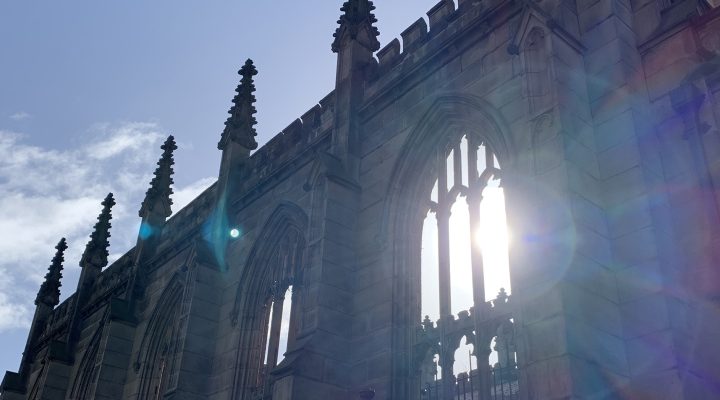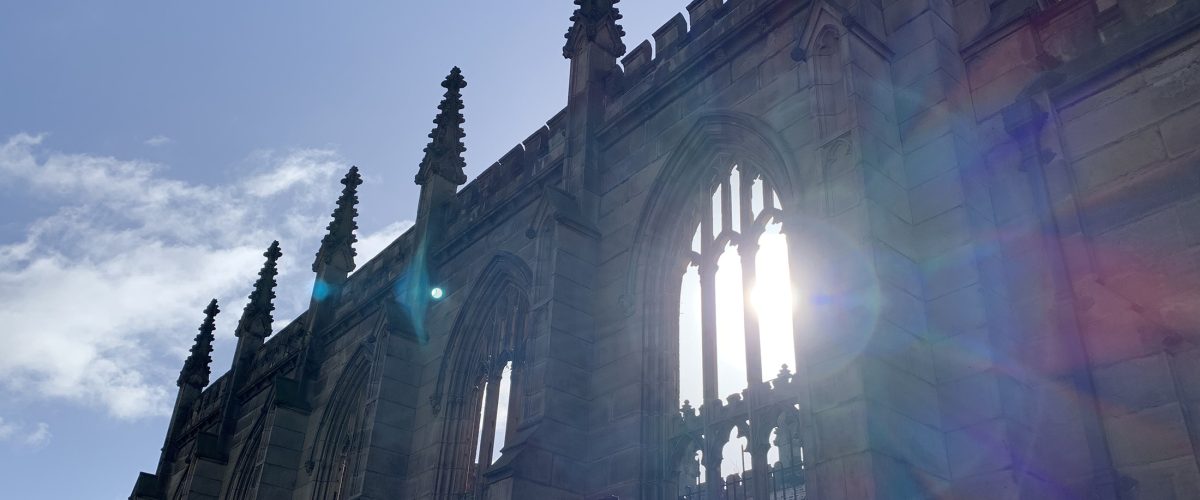Many Americans believe increased secularization will minimize religious and political tensions, simmer the culture wars and reduce threats to democracy, author and political scientist John Compton said.
Some mainstream commentators argue the continuing move away from religious belief and belonging will calm division, boost tolerance and produce a “rosy” future, Compton explained during the 20th annual Walter B. and Kay W. Shurden Lectures on Religious Liberty and Separation of Church and State. The event is sponsored by Baptist Joint Committee for Religious Liberty and was held Nov. 13-14 on the Macon and Atlanta campuses of Mercer University in Georgia.
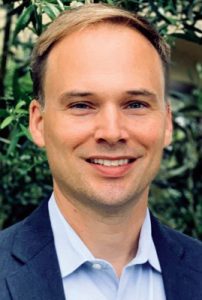
John Compton
Compton is professor of political science at Chapman University in Orange, Calif., and the author of several books, including The Evangelical Origins of the Living Constitution and The End of Empathy: Why White Protestants Stopped Loving Their Neighbors.
In the final of his three lectures, “Secularization and the Fracturing of the American Left,” Compton expressed skepticism that rising secularization is healthy for the nation, but said it instead contributes to the growth of political extremism, xenophobia and anti-democratic values.
Mainline history
What’s more, flagging participation in Christian denominations and other faith traditions correlates to diminishing civic engagement and holds significant consequences for the Democratic Party and progressive causes, he said.
Compton cited a 2017 New York Times column by Ross Douthat urging liberals to return to Mainline churches as a step toward addressing the problem. “He pointed out that many of liberalism’s foundational tenets, its commitment to human equality, its concern for the marginalized, its faith in progress, were inherited from the nation’s rapidly fading Mainline Protestant denominations.”
“Many of liberalism’s foundational tenets … were inherited from the nation’s rapidly fading Mainline Protestant denominations.”
About 55% of Americans belonged to a Mainline church during the 1950s. Membership plummeted to 30% by the early 1970s and lingers around 9% this year, according to Ryan Burge, a sociologist of religion and associate professor of political science at Eastern Illinois University.
One of the repercussions of that trend is the “religious blind spot” that prevents secular activists from recognizing the essential role Black and Mainline Protestant churches have played in labor, racial and social justice initiatives, Compton said.
“As left-leaning elites have become more secular, they have lost sight of religion’s critical supporting role in the major egalitarian reform movements of the 19th and 20th centuries, from the abolition of slavery to the eradication of child labor, to the creation of child and maternal health programs, to the construction of the welfare state and to the passage of civil rights and voting rights.”
None of those reforms would have succeeded without grassroots ecumenical and denominational religious networks and the wider presence of shared faith symbols and biblical mandates to help the marginalized and oppressed in society, he assessed.
Nor would there have been much success without the grassroots organizing and lobbying prowess of the National Council of Churches, which represented 35 million Mainline churchgoers in its mid-20th century heyday, he said.
Christian nationalism
It’s a drastically different story in a year marked by the continuing rise of Christian nationalism and Donald Trump’s Nov. 5 election. Meanwhile, Pew Research Center reported 28% of Americans now identify as religiously unaffiliated.
“Where these religious supports are increasingly unavailable, large-scale reform projects of the sort favored by liberals have become ever more difficult to enact and even more difficult to implement,” Compton said.
Complicating matters is the tendency of white, liberal political leaders to overlook the fact many non-white Democrats continue to view party affiliation and politics through a religious lens.
“There is a real risk the same Black Americans who are drifting away from organized religion will simultaneously drift away from the Democratic Party.”
“Millions of Black Americans identify with the Democratic Party at least in part because they believe it embodies or once embodied the core principles of the Black Protestant tradition,” Compton said. “If current secularizing trends continue, there is a real risk the same Black Americans who are drifting away from organized religion will simultaneously drift away from the Democratic Party or progressive politics.”
And that risk is real. According to a 2021 Pew study, the share of African American “nones” included 18% identifying as “nothing in particular” and 3% as agnostics or atheists.
“Black Millennials and members of Generation Z are less likely to rely on prayer, less likely to have grown up in Black churches and less likely to say religion is an important part of their lives. Fewer attend religious services, and those who do attend are less likely to go to a predominantly Black congregation,” Pew said.
But no one is talking seriously about the wedge secularization is driving between people of color and whites in Democratic circles, Compton added.
“The Democrats’ internal divide remains stark when we move to what we might call broader culture-war issues. Black and Hispanic Democrats register more conservative attitudes than white Democrats on a wide range of social and cultural issues, and the chasm widens further when we distinguish between rank-and-file white Democrats and those who might be described as Democratic elites, which I define as people who say they have given money to the party recently.”
A hopeful model
If there is any hope of healing nation’s fractured culture, Compton added, one model may be the work of Eboo Patel, president of Interfaith America, a nonprofit developing networks of religious communities capable of pursuing social justice reforms and delivering social services.
“Historically speaking, he points out religious groups are among the only social institutions that have succeeded, at least on occasion, in prompting citizens to sacrifice immediate gratification in the service of aiding the less fortunate, caring for the environment and promoting the well-being of future generations.”
While acknowledging the decline of progressive faith groups means fewer volunteers, lower morale and less money, Patel notes religious communities have proved capable of reinventing themselves in the face of insurmountable odds, Compton said. “In short, he’s enough of an optimist not to scoff at the idea that American liberals might one day go back to church.”
Responses
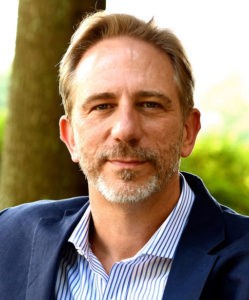
David Gushee
In his response to Compton’s lecture, David Gushee, distinguished university professor of Christian ethics at Mercer University’s McAfee School of Theology, said his own research and writing confirm the negative effect a lack of religious belief and belonging can have on democracy.
In his book Defending Democracy from Its Christian Enemies, Gushee said he found those who have “fallen for the authoritarian, reactionary politics of the MAGA type are very thinly connected, if at all, to anything resembling practicing Christian communities or orthodox Christian belief.”
That conclusion “dovetails very nicely with your finding that people who still participate in organized religious communities are less likely to fall prey to anti-democratic, extremist or pro-violence politics,” he said. “In other words, they have a tradition that sets some boundaries on how they think about politics, whereas the true believers on the MAGA side oftentimes are building a religion on the fly.”
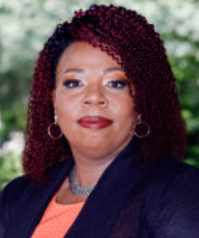
Angela Parker
Rather than dissecting the voting patterns or declining religious participation of Black Americans, Compton and other scholars should focus more closely on the influence of white supremacy and white privilege in undermining democracy and dividing progressive movements, said Angela Parker, associate professor of New Testament and Greek at McAfee.
“What, then, does it mean for American liberals to return to the church? The concept of church has been hijacked by white Christian nationalism in the Republican Party. White Christian nationalism’s deep story goes something like this: America was founded as a Christian nation by white men who were traditional Christians who based the nation’s founding documents on Christian principles.”
Parker said she agrees liberals need to return to church to restore the Left’s ability to effectively organize movements and to become part of the cultural conversation.
But that church must be the Black church where white Christians can encounter their privilege and racism and develop the empathy white Christianity is missing, she said. “Instead of looking in small shifts in polling data, look at large shifts toward white supremacy we have seen in this election.”
Related articles:
How whiteness protected itself in America’s election | Opinion by Cassius Rudolph
One nation under God: How liberal religion dominated mid-century America | Analysis by Alan Bean

